Salting is the most common way of preserving food before modern refrigeration becomes common. Salted eggs are made traditionally by coating them with a thick layer of salty clay or charcoal paste. This preserved food can be found in many Asian countries.
Curing salted eggs in saturated brine solution is faster than the traditional salted charcoal/clay paste method when you make salted egg at home. You will get a firm egg yolk just after 10 days. Salted eggs are surprisingly easy to make at home, they do require about 10 days for curing.
You can make salted egg either from duck or chicken eggs. Duck eggs have bigger egg yolks, higher fat content with a richer flavor.
Learning how to make salted eggs is useful in many recipes such as making mooncakes and cookies.
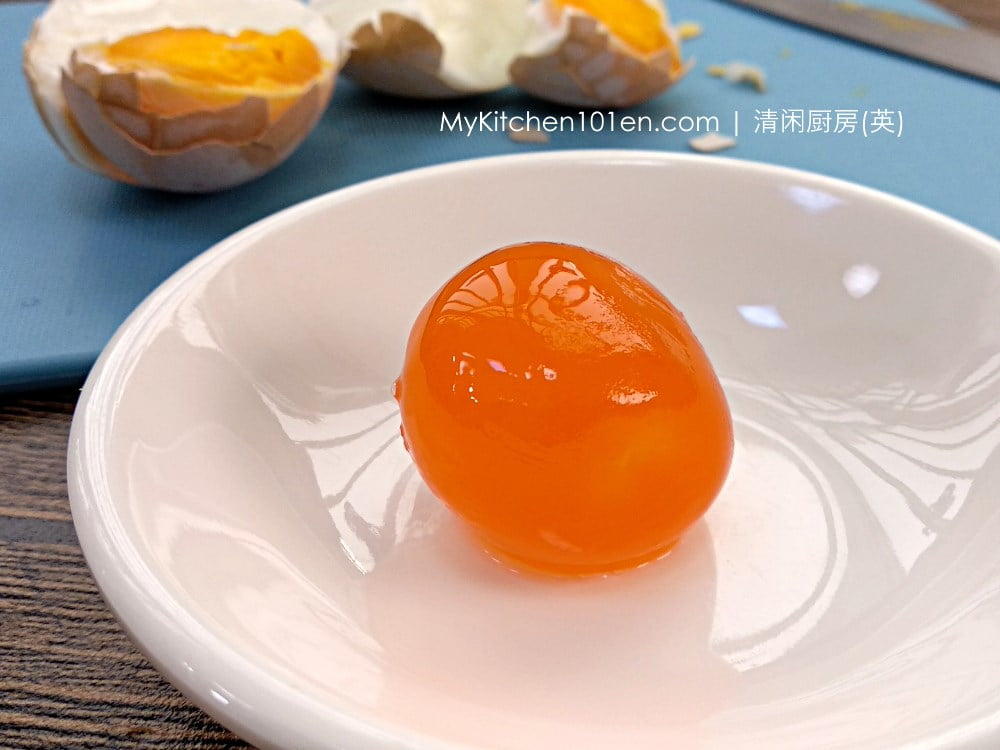
Related:
- How to Cook Hard-Boiled Eggs
- Cracking the Egg: Over Easy vs Sunny Side Up Eggs
Chinese Version: 10天咸蛋做法
How to Make Salted Egg at Home | MyKitchen101en
Ingredients:
- 8 eggs
- 300 g salt
- 800 ml water
- 260 ml Vinegar (Add 3 parts of water to 1 part of vinegar, enough to submerge eggs)
[ads1]
Summarize the recipe for salted egg
The recipe for salted egg involves preparing a brine solution, submerging clean eggs, and allowing them to cure for 10 days. Start by boiling a mixture of 150 grams of sea salt and 1 liter of water, and then cool it to room temperature. Place 15-20 fresh duck or chicken eggs in an airtight container, cover them with the brine, and store the container in a cool, dark place to create delicious, savory salted eggs.
Instructions:
1 Add salt and water in a saucepan; heat the solution to dissolve the salt. The solution becomes saturated and there will be some undissolved salt at the bottom of the pan. Set aside to cool completely.
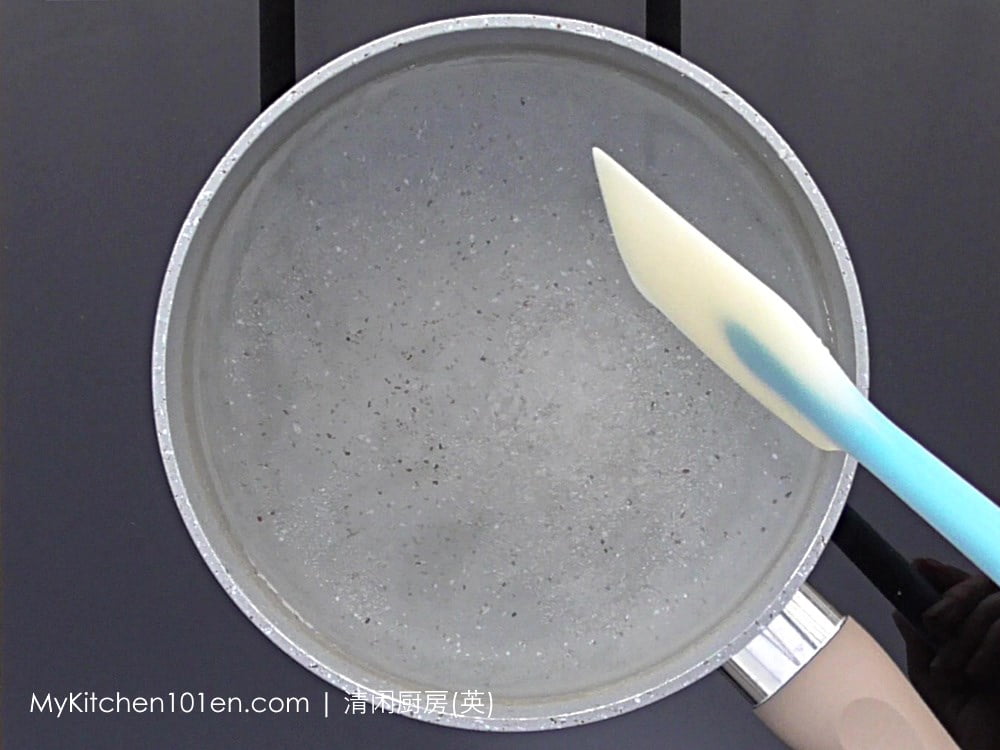
2 Clean eggs under running water and check for any cracked eggs.
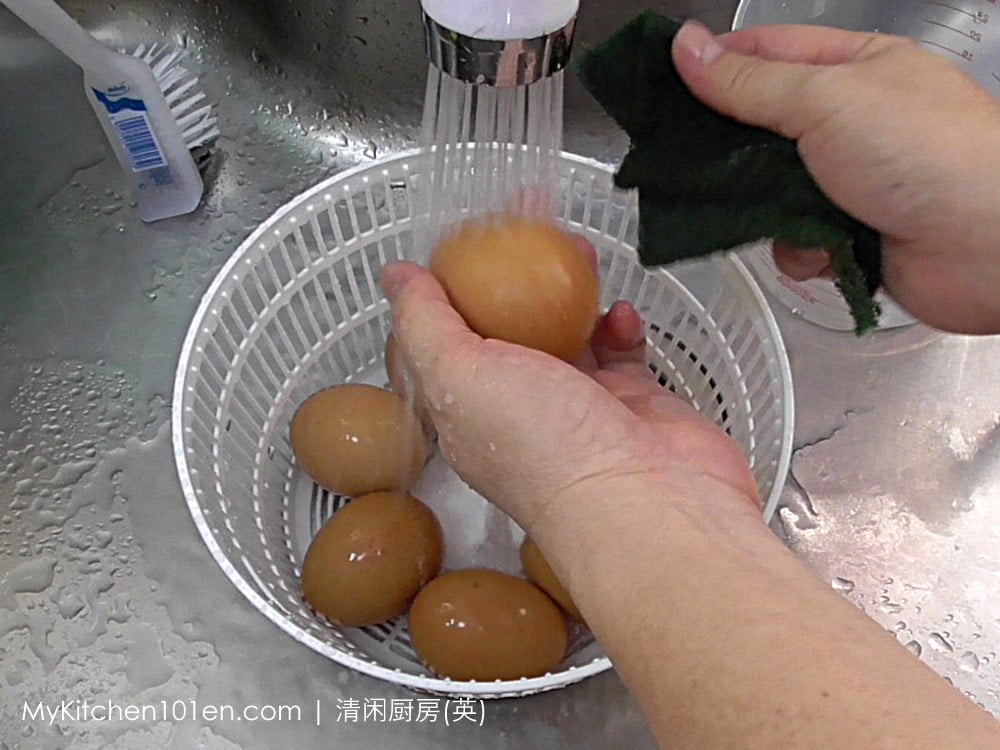
3 Mix 1 part of vinegar to 3 parts of water; the solution must be enough to fully cover all the eggs. Soak for 1 hour.
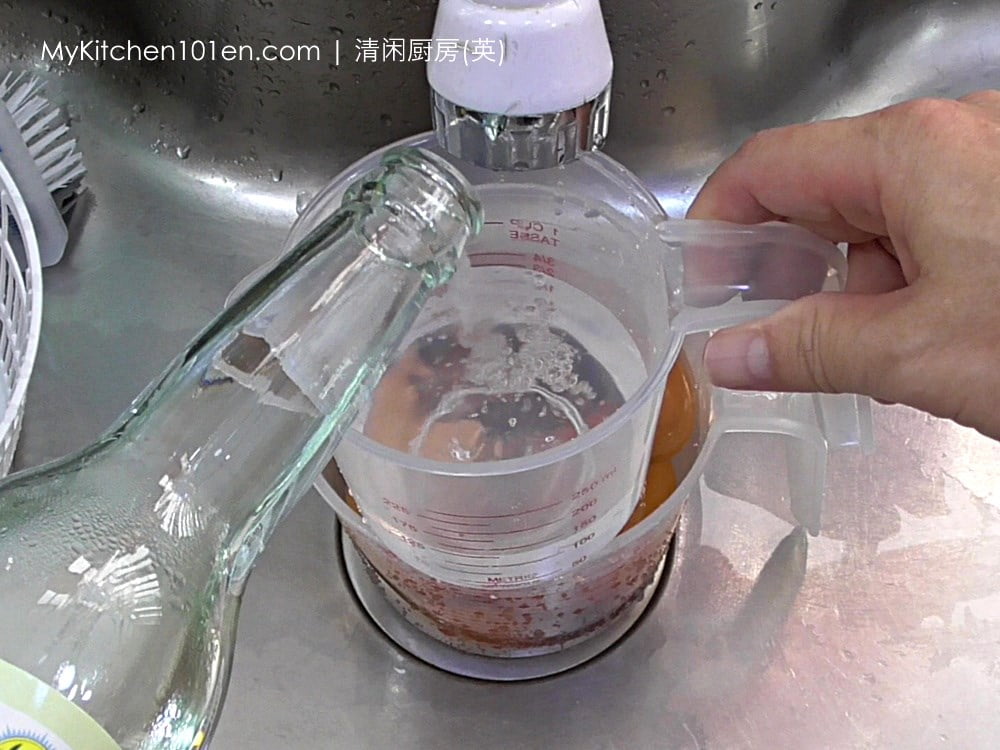
[ads1]
4 Dry with a kitchen towel or clean cloth.
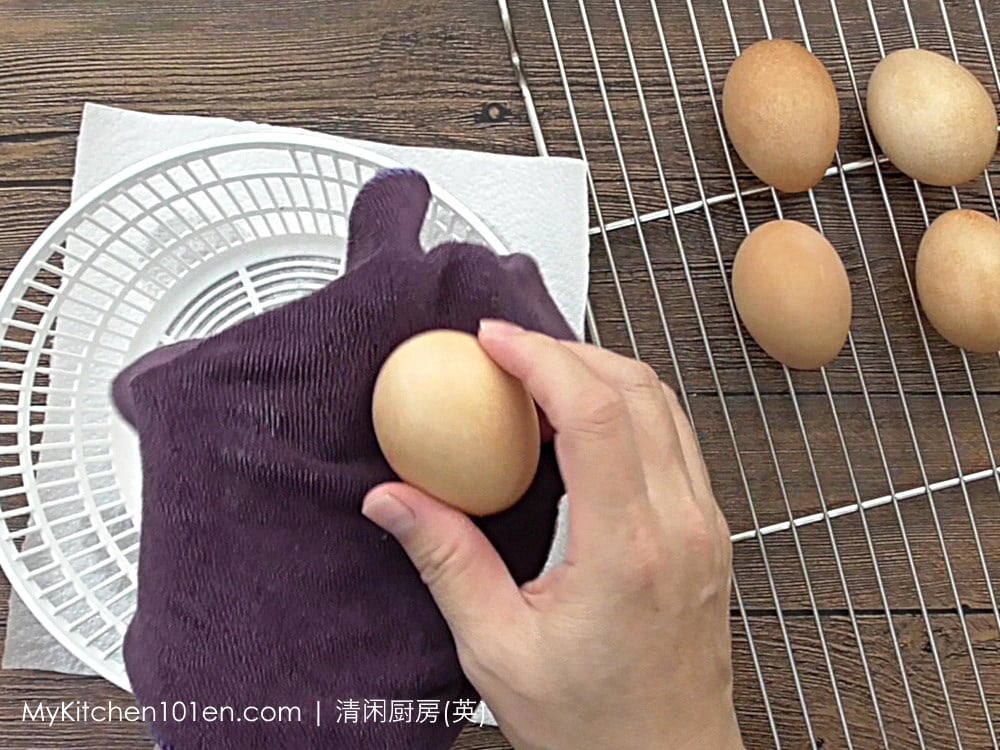
5 Carefully stack egg in a glass or ceramic jar, pour in the cooled saturated brine solution, cover, and set aside for 10 days.
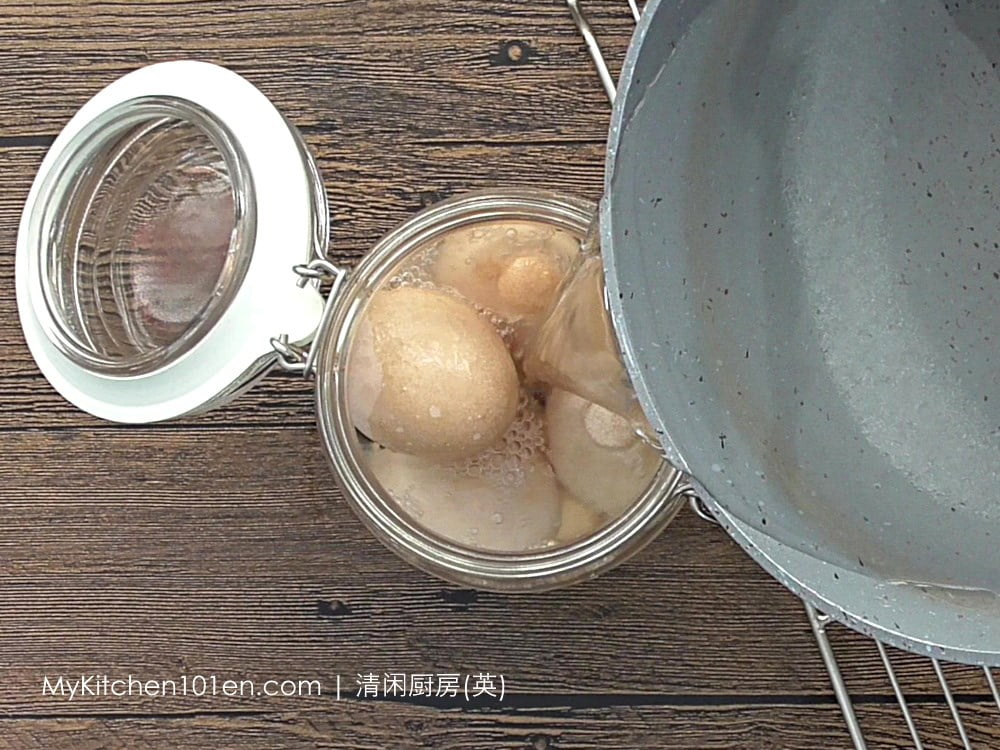
6 After 10 days, remove one egg and crack it open to check the doneness. The egg yolk should be firm, if not leave it for another 2-3 days depending on the size of the egg.
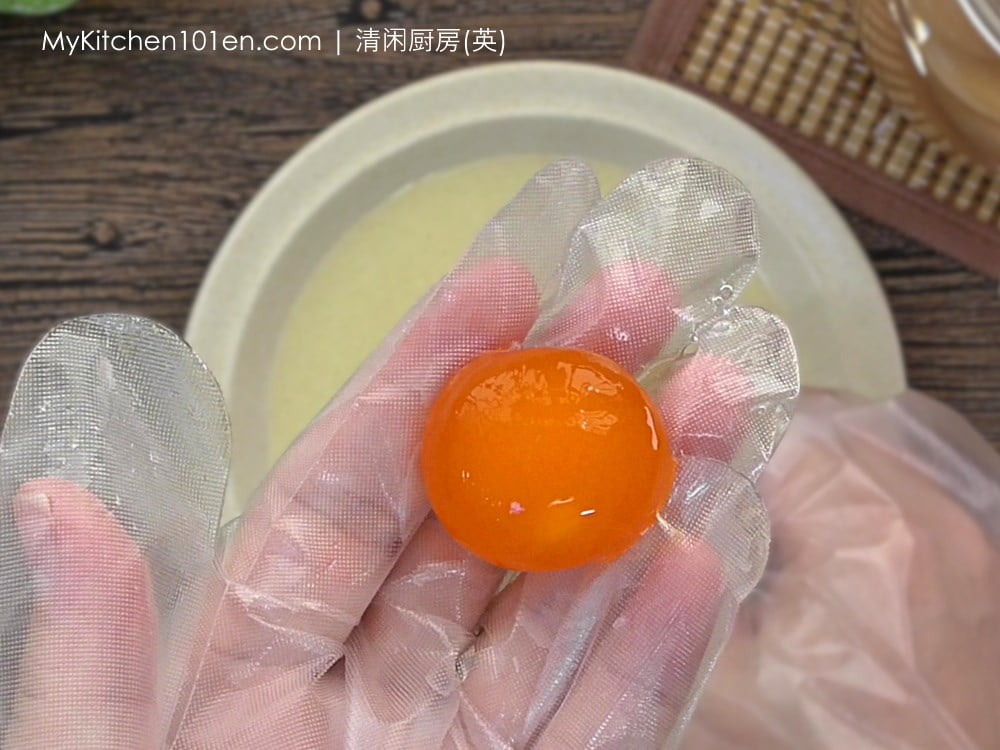
7 Remove all eggs from the brine solution and pat dry with a paper towel. Keep refrigerated for up to 3 months.
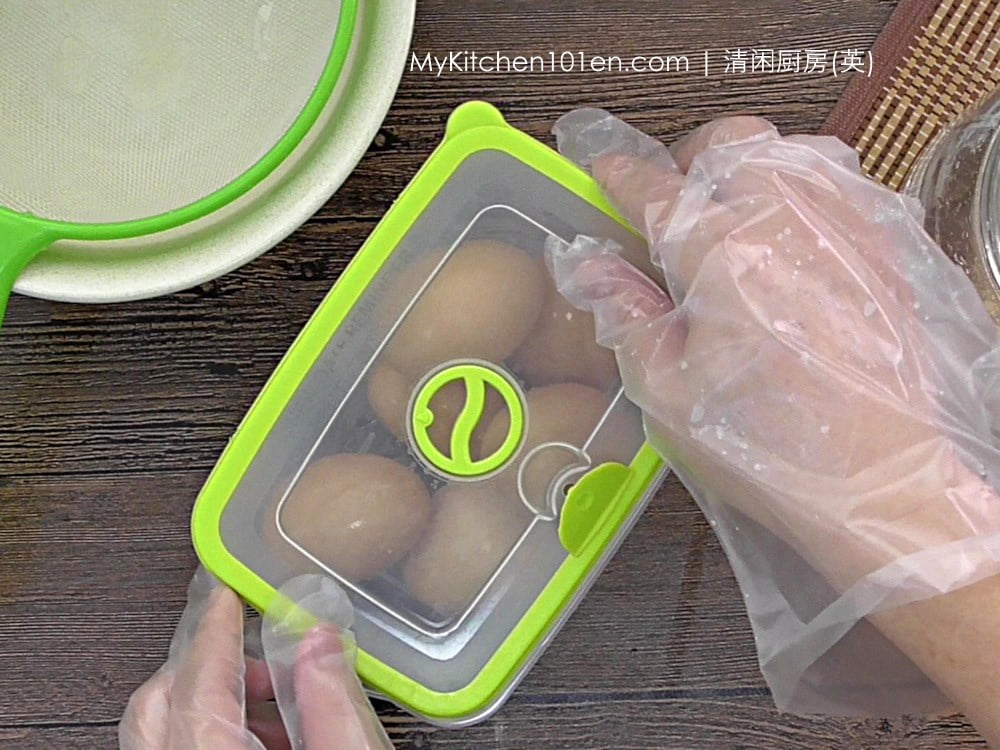
[ads1]
Salted egg facts
Salted eggs are a popular preserved food in various Asian cuisines, particularly in China, the Philippines, and Vietnam. Here are some interesting facts about salted eggs:
- Traditional preservation method: Salted eggs are made by preserving fresh chicken or duck eggs in a concentrated salt solution (brine) or by packing them in a mixture of salt and clay. This method has been used for centuries to extend the shelf life of eggs.
- Unique taste and texture: The curing process gives salted eggs a distinct flavor and texture. The yolk becomes creamy and rich with a salty taste, while the egg white turns translucent and has a slightly rubbery texture.
- Nutritional value: Salted eggs are a good source of protein, vitamins, and minerals, such as vitamin A, B vitamins, and selenium. However, due to the high salt content, they are also high in sodium, making them unsuitable for people on a low-sodium diet.
- Versatility in dishes: Salted eggs can be enjoyed on their own, boiled or steamed, or used as an ingredient in various dishes. They are commonly found in recipes like mooncakes, zongzi (rice dumplings), and salads, as well as in sauces and condiments.
- Different types: Salted eggs can be made with either chicken or duck eggs. Duck eggs are preferred in some regions due to their larger size and richer yolk. The color of the yolk can also vary, ranging from light yellow to deep orange, depending on the type of feed the poultry consumed.
- Commercial production: While homemade salted eggs can be made in 10 to 20 days, commercial production often involves a longer curing process, sometimes up to 30 to 40 days, to achieve a consistent flavor and texture.
Interesting read:
Salted Egg Recipe
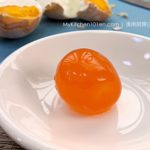
Salted eggs are made traditionally by coating them with a thick layer of salty clay or charcoal paste. This preserved food can be found in many Asian countries.
- 8 eggs
- 300 g salt
- 800 ml water
- 260 ml Vinegar (Add 3 parts of water to 1 part of vinegar, enough to submerge eggs)
- Add salt and water in a saucepan; heat the solution to dissolve the salt. The solution becomes saturated and there will be some undissolved salt at the bottom of the pan. Set aside to cool completely.
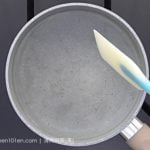
- Clean eggs under running water and check for any cracked eggs.
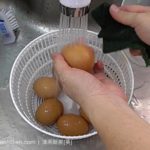
- Mix 1 part of vinegar to 3 parts of water; the solution must be enough to fully cover all the eggs. Soak for 1 hour.
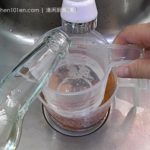
- Dry with a kitchen towel or clean cloth.
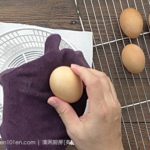
- Carefully stack egg in a glass or ceramic jar, pour in the cooled saturated brine solution, cover, and set aside for 10 days.
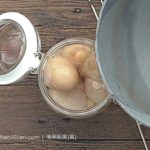
- After 10 days, remove one egg and crack it open to check the doneness. The egg yolk should be firm, if not leave it for another 2-3 days depending on the size of the egg.
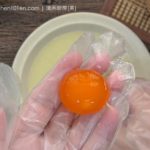
- Remove all eggs from the brine solution and pat dry with a paper towel. Keep refrigerated for up to 3 months.
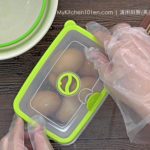
This recipe yields 8 eggs.
The nutritional value for reference is for 1 egg.



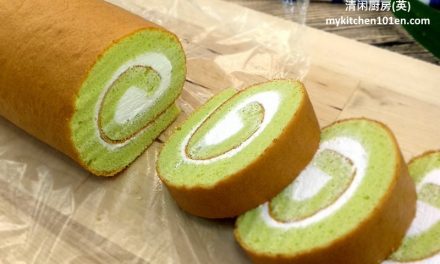
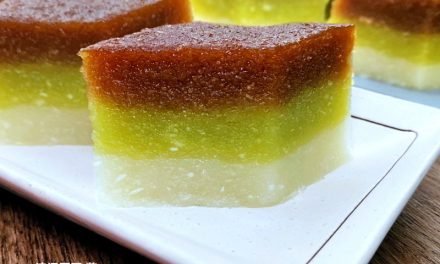
If I increase the number of eggs .. do I need to also increase the salt solution please? Thanks
Yes.